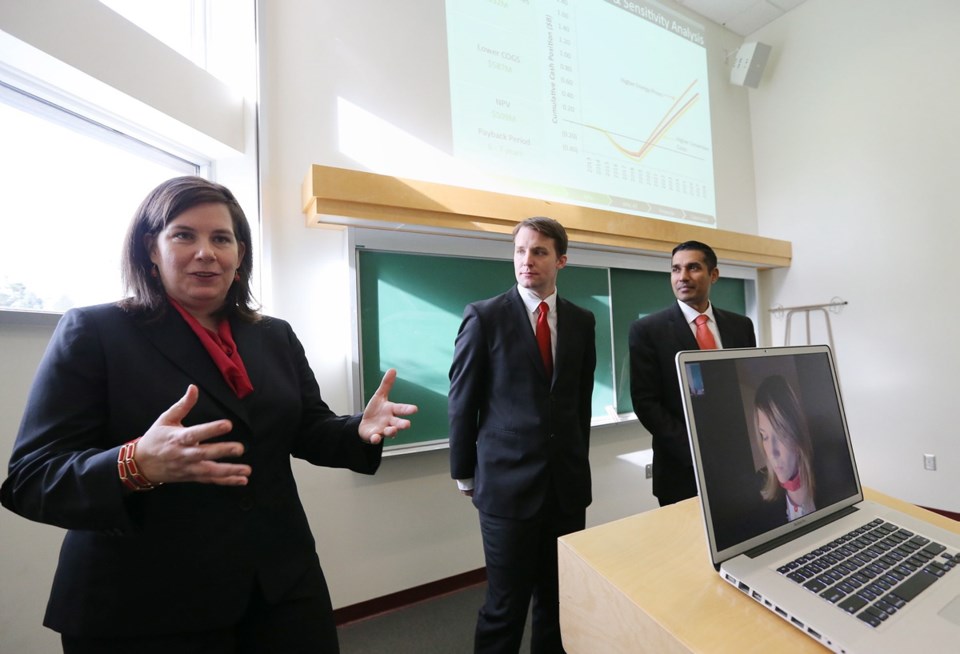A team of University of Victoria business students took tips Wednesday on fine-tuning their strategy to push a Swiss pharmaceutical giant up from 99th place on the Global 100 index of corporate sustainability.
Karin Feldkamp (participating via computer from Germany), Susan Laidlaw, Jesal Shah and Andrew Spence were prepping for an international competition on Jan. 23 in Davos, Switzerland. The Master of Business Administration students are one of three finalists from 35 teams around the world.
Each team has 10 minutes to present ideas to judges on how to improve Novartis AG’s spot on Corporate Knights’s sustainability list. UVic is up against Simon Fraser and York universities.
The contest is happening at the same time as the World Economic Forum, but is not one of its official events, said Tyler Hamilton, of Corporate Knights.
The goal of UVic’s team is that by 2020 Novartis will be the top-ranked pharmaceutical company on the Global 100 while also increasing shareholder value, Laidlaw said.
Toronto-based Corporate Knights and York University sponsor the competition. Corporate Knights also publishes a magazine focusing on clean capitalism and sustainability. Its Global 100 index uses a dozen factors to examine how a company’s financial performance relates to its environmental and social efforts. Examples include how much revenue a company earns in relation to the amount the energy it uses, and how much money it invests in research and development as a percentage of its revenue. Gender diversity, the status of its pension plan and the amount of greenhouse gas emissions it produces are among other factors.
UVic’s team took feedback from industry representatives and UVic Gustavson School of Business faculty in the countdown.
The most effective way to boost Novartis’ rating would be to target specific areas with the greatest potential for improvement by 2020, team members said. That would mean cutting its energy consumption and greenhouse gas emissions by 50 per cent, and reducing water consumption and waste production by 90 per cent. The students also suggest increasing women in executive positions by 30 per cent.
Team recommendations include carrying out energy audits, using renewable energy, capturing rainwater and enhancing gender diversity programs.
Participating at this level looks good on students’ curriculum vitae and might lead to job offers, said Matthew Murphy, assistant professor of sustainability at UVic’s business school.
“They get to apply what they’ve been learning through the MBA program to real-world business problems and then showcase what they’ve learned to the actual executives of these major multinational companies,” Murphy said.
Shah and Spence competed in the Nespresso MBA challenge last year in Switzerland. All members of the UVic team have day-time careers and are evening students finishing up three years of study.



